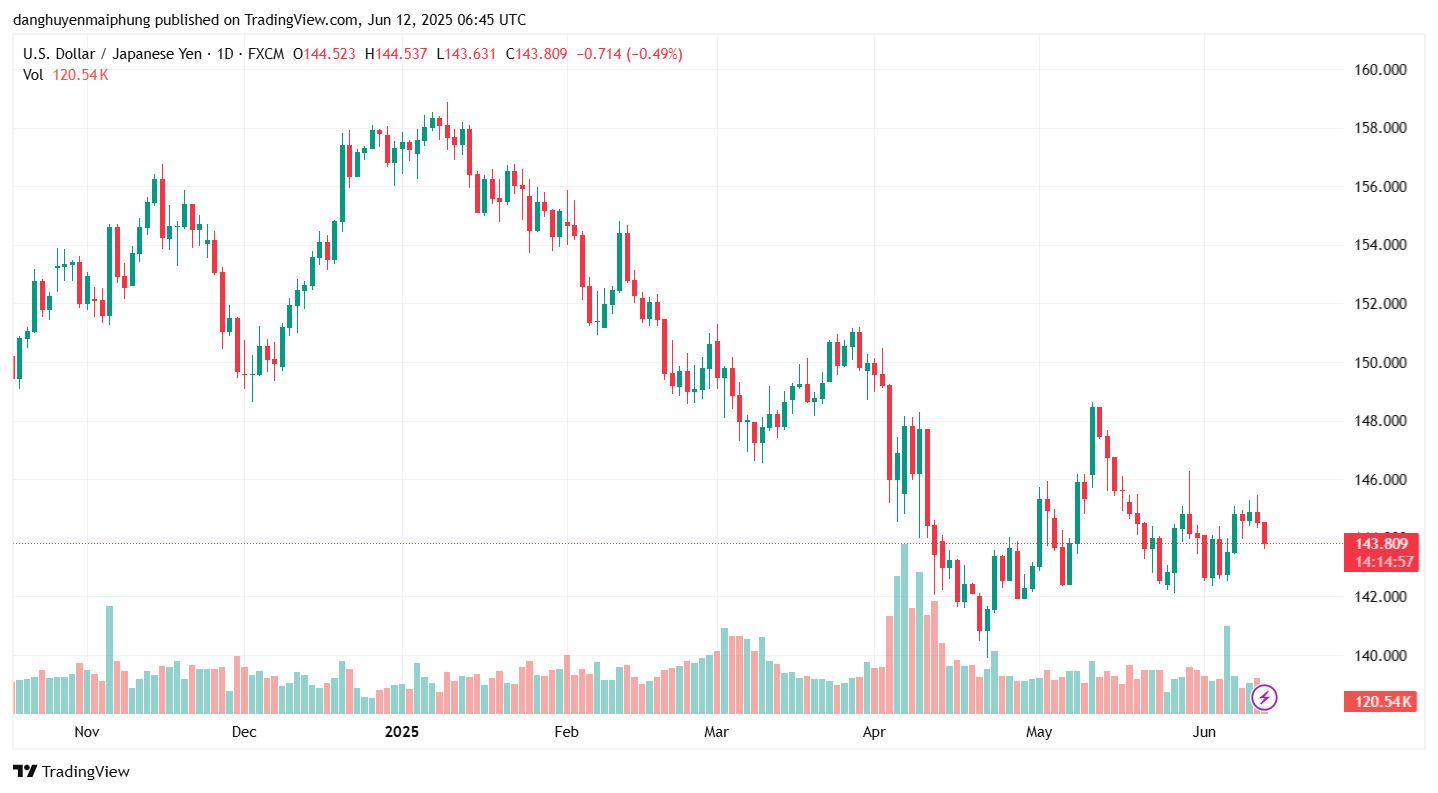Yen exchange rate today
According to Lao Dong, on June 12, the Japanese Yen (JPY) tended to increase in price, trading around 144.00 JPY/USD - near the lowest level of the week for the USD/JPY exchange rate pair.

The main driver comes from investors boosting sales of the US Dollar (USD) after weaker-than-expected inflation data, while geopolitical tensions and global trade uncertainty are boosting demand for safe-haven assets such as the Yen.
The market initially reacted positively to new developments in US-China trade negotiations, including plans to ease export control and reduce stress.
However, this confidence was quickly overshadowed after President Donald Trump suddenly announced that he would unilaterally impose new tariffs within the next one to two weeks, asserting: "This is an accept or reject deal. US Treasury Secretary Scott Bessent later said that the extension of the temporary suspension of tariffs could only apply to goodwill negotiators.
Japanese Yen appreciates amid global tensions
Meanwhile, China is reportedly preparing to impose a six-month limit on rare earth exports to the US a move seen as a response to car and technology manufacturers. In return, the US has agreed to ease some export restrictions in the aviation and chemical sectors, signaling a temporary but fragile deal between the world's two largest economies.
According to FXStreet, many investors expect the Bank of Japan (BoJ) to continue tightening monetary policy in the context of rising domestic inflation. Although a Reuters survey shows that the majority of economists expect the BoJ to keep interest rates unchanged in 2025, the market is still leaning towards the possibility of raising interest rates a trend that is in contrast to the policy of the US Federal Reserve (Fed).
According to the US Bureau of Labor Statistics (BLS), the consumer price index (CPI) in May increased by only 2.4% compared to the same period last year - lower than expected. This makes the market almost certain that the Fed will cut interest rates next September. The expectation of a 25 basis point interest rate cut has increased to nearly 70%, pushing US bond yields down and putting pressure on the USD.
In addition to economic factors, the geopolitical situation in the Middle East is also contributing to strengthening the role of the Yen as a safe asset. The media reported that Israel may be preparing to attack Iranian nuclear facilities, while the US has begun evacuating military personnel and families in some areas.











